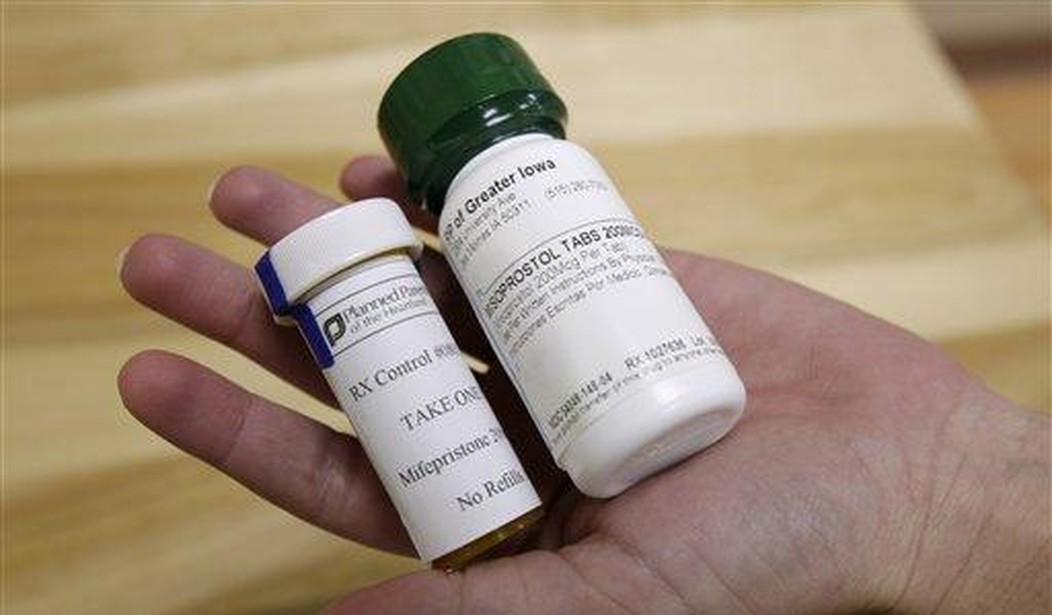Public colleges and universities in Massachusetts are now required by law to provide medication abortion access for their students, either through on-campus health services or a nearby outside referral.
The legislation, Bill H.5090, expands protections for “reproductive and gender-affirming care.” in the state. “Gender-affirming” care includes hormone therapy and sex reassignment surgery for people who identify as “transgender.”
The legislation states that access to abortion and gender-affirming care is protected by the state constitution. It requires public colleges and universities to create medication abortion “readiness plans” for students. The schools must provide resources for students to obtain a medication abortion, which consists of two pills, mifepristone and misoprostol. The former stops the pregnancy from developing and the latter expels the pregnancy from the woman’s body.
The state’s department of public health will review the schools’ readiness plans annually (via Massachusetts Legislature):
“Medication abortion readiness”, each institution’s preparedness to provide medication abortions to students or assist students in obtaining medication abortions, including, but not limited to, having in place equipment, protocols, patient educational materials, informational websites and training for staff; provided, however, that “medication abortion readiness” may include the provision of medication abortions.
“Health center”, a clinic or health center providing primary health care services to 150 students operated by an institution.
(b)(1) Each institution shall develop a medication abortion readiness plan for its students.
(2) The department of public health shall issue guidance to all institutions regarding the required contents of medication abortion readiness plans in accordance with the varied capabilities of institutions to provide services including, but not limited to, directly providing medication abortions to students in a health center, providing referrals for abortion care services not provided in the health center or providing information to students about obtaining a medication abortion. In developing the guidance, the department shall consider factors including, but not limited to, whether the institution has an operational health center on campus, the institution’s proximity to a hospital, clinic or other facility that provides medication abortion, availability, convenience and cost of public transportation between the institution and closest facility that provides medication abortion and whether the institution employs health care workers on campus.
(3) The department of public health shall review medication abortion readiness plans annually, taking into consideration any changes to the capacity of each institution to provide 165 services to students since the preceding approval of the plan.
Recommended
Townhall covered in January how University of Massachusetts Amherst announced it would offer students abortion medication on campus beginning this fall. When the news came out, Democratic state lawmakers told Boston.com that a piece of legislation was in the works to require all public colleges and universities in the state to provide medication abortion access.
This week, Democratic State Sen. Lindsay Sabadosa told Boston.com that similar legislation was introduced and passed in California. She noted that she met with Umass Amherst students to discuss ways to expand abortion access and they brought the California legislation to her attention.
Sabadosa told Boston.com that the Supreme Court’s overturn of Roe v. Wade in June “really galvanized the legislature to respond.”
Boston.com claimed that the legislation keeps students from going to pro-life pregnancy centers near campus that do not provide abortions.
“By keeping students seeking medication abortions on campus or referring to specifically selected local places, the new law prevents them from accidentally going to crisis pregnancy centers — centers that appear to be reproductive health care clinics that actually provide no abortion care or abortion referrals,” the report stated.
“If students are getting online and searching for services, sometimes you end up at the right spot and sometimes you end up at a crisis pregnancy center,” Sabadosa said. “CPCs tend to pop up around college campuses specifically, so avoiding those is a great byproduct of the legislation.”
Pro-abortion Massachusetts Sen. Elizabeth Warren (D) has said in the weeks since Roe was overturned that she wants to shut down pro-life pregnancy centers. She also said that abortion provider Planned Parenthood should create outposts on federal lands in National Parks to offer women abortions.
A new Charlotte Lozier Institute analysis published soon after Roe fell found that Planned Parenthood abortion clinics are outnumbered 14 to one by thousands of community-based health care centers and pregnancy centers that do not rely on abortion.
“Planned Parenthood might be favored by the media and political elite, but the reality is that women are offered more options and real choices through community-based care providers,” CLI Deputy Director Genevieve Plaster, who authored the study, said in a statement.
“Our research found that Planned Parenthood facilities are outnumbered 14 to 1 by comprehensive, federally-funded health clinics and pro-life pregnancy centers, which receive a majority of their funding from the community and are better equipped to provide pregnant women with holistic care when faced with difficult circumstances,” she added. “FQHCs, which unlike Planned Parenthood are not dependent on abortion profits, continue making comprehensive medical care available to the very women pro-abortion politicians claim to support.”
























Join the conversation as a VIP Member